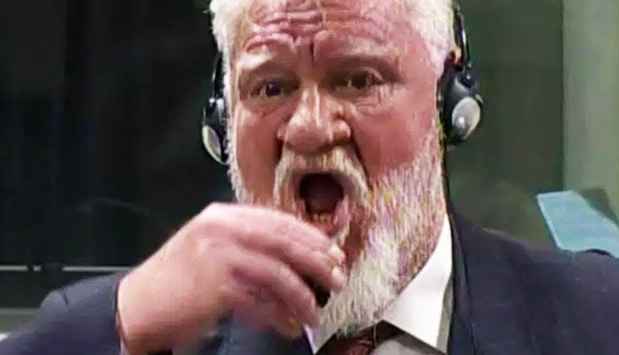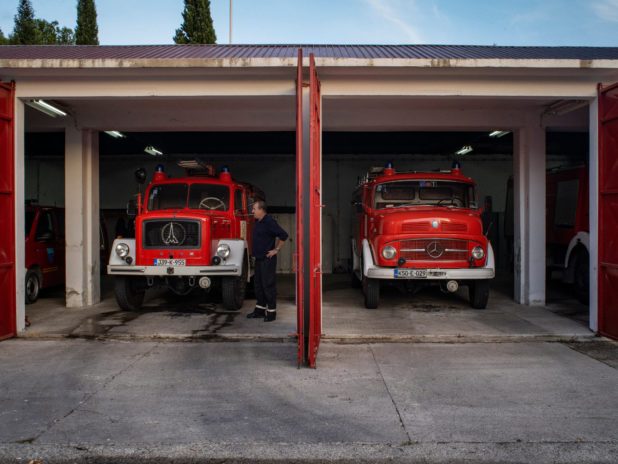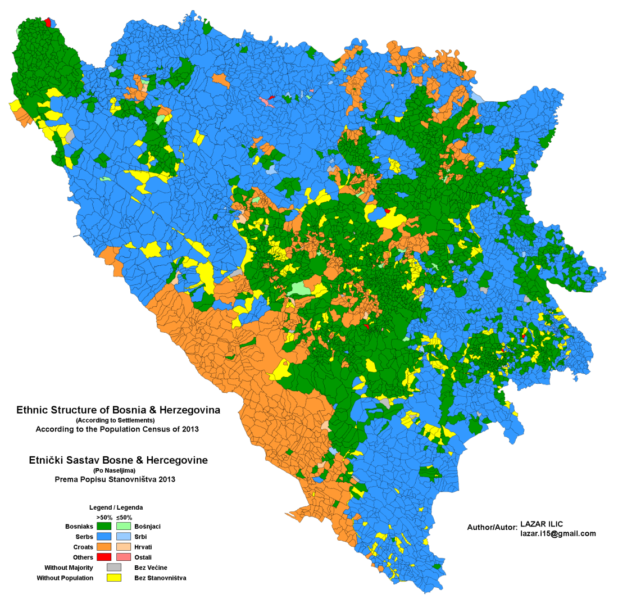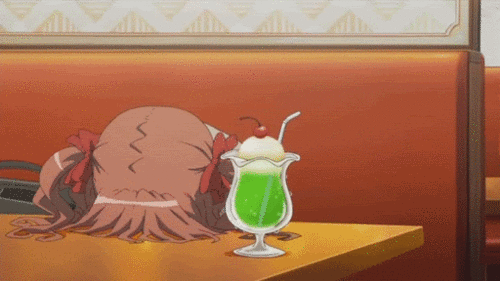Spartacus
Daily Stormer
November 22, 2018
This is totally a real country, you stupid goyim
I see more and more news about Bosnia lately.
It’s not quite a deluge, but it’s building up, and all of it is about how this artificial state’s wondrous diversity is somehow not working properly, and that someone – it’s unclear who exactly – should do something to fix it for some reason.
When a fire breaks out in the Bosnian city of Mostar, Sabit Golos, a veteran firefighter, knows that he does not have to worry unless the flames take hold on the Muslim side of what, from 1992 until 1994, was the front line in a vicious ethnic conflict.
That is because Mostar, though long at peace, has two separate fire brigades, one made up mostly of Muslims like Mr. Golos, who are responsible for putting out fires on the east side of the old front line and a second one staffed by Catholic Croats who douse flames on the other side.
LOL
This is like real life Kusturica movie, probably one with a bad ending.
Bosnia, 20 years from now
The line vanished long ago as a boundary between warring communities and does not officially exist. But it lives on in the mind, an emblem of the ethnonationalist fissures that paralyze Mostar and the whole of Bosnia.
As Europe and the United States struggle with the rise of ethnic nationalism as a divisive force, Bosnia’s divisions offer a dark lesson in how, once cleaved apart by fear and fighting, communities can stay splintered long after many people have forgotten what it was that pushed them apart.
The Yugoslav Wars ended 17 years ago, how short a memory do these people have?
I still remember watching it on the news when I was 9-10 or so, and my memory would be even more detailed if I were actually there.
The entrenched disunion here was reflected in recent national elections, marked by nationalist rhetoric and open questioning of Bosnia’s continued existence as a state.
Did anybody bother answering any of those questions?
Why?
Nobody’s happy with this situation, so why not try to fix it peacefully before it fixes itself the hard way?
“Europe is worried these days about the rise of the far right, but this place was way ahead of the curve in showing how dangerous and enduring ethno-nationalism can be,” said Tim Clancy, an American resident of Bosnia who worked in Mostar throughout the war helping victims of the fighting.
I think you mean how dangerous the suppression of ethno-nationalism is, because all these problems these people have come from the fact that they’re forced to live with each other instead of each going their own way.
Both of Mostar’s fire brigades are part of the same municipal fire service — just as Mostar’s two garbage collection companies, two hospitals, two electricity companies, two bus stations, two popular nightclubs and two soccer teams all technically serve the same city. But they are in reality barricaded behind the zigzagging line drawn in blood a quarter of a century ago, during Europe’s worst conflict since World War II.
“Everything in this town is very clear. Everyone knows whose territory lies where,” Mr. Golos said, adding that his brigade never gets asked by Mostar’s fire service dispatcher to fight a blaze in an area that was controlled by Croat forces during the war, no matter which of the city’s two fire stations is closer.
So they’re split about everything except the actual country they live in…
“This isn’t gonna end badly at all, trust me goyim, I’m your greatest ally and diversity is your greatest strength.”
“You are looking at your own future here,” said Adnan Huskic, a scholar in politics and international relations at the School of Science and Technology in Sarajevo. “We have been dealing with the rise of nationalist populism for years.”
No, you credentialed cretin, this isn’t the rise of nationalist populism, it’s the reaction to the suppression of nationalism.
Nationalism is a normal, universal thing that has always existed everywhere and will always exist everywhere.
All people want to live in their own country, surrounded by people just like them, it’s a normal instinct that every human being has.
All these conflicts come from not letting people have their own territory, not from anything else.
Instead of creating a unitary state, the 1995 agreement that halted the bloodletting in Bosnia — reached in Dayton, Ohio by the leaders of Bosnia, Serbia and Croatia — only entrenched the nationalist elites that prosecuted the war. It divided Bosnia into two “entities” — a Serb-run Republika Srpska and a mixed Muslim-Croat Federation of Bosnia and Herzegovina. At the summit of this ramshackle state stood the presidency, controlled by three elected presidents, one each for Bosnian Serbs, Croats and Muslims, who are known as Bosniaks.
Authority was further subdivided, largely along ethnic lines, with the establishment of 10 local units of government called cantons, each with its own president and set of ministers who duplicate many of the functions of the weak national government.
So these guys were killing each other and only stopped when they achieved some degree of separation, and the best conclusion to draw from this is to… Not separate them?
For more than two decades of staggering from crisis to crisis, Bosnia’s fragile system has defied predictions of imminent collapse. This ability to survive against the odds, however, is now seriously at risk, said Paddy Ashdown, a British politician who from 2002 to 2006 served as Bosnia’s most senior foreign official, its so-called high representative.
“We’ve managed to keep this thing intact for over 2 decades, isn’t that amazing?”
His gloomy prognosis follows national elections held in October that were dominated, particularly in the Republika Srpska, by divisive appeals for tribal loyalty.
The result of the balloting, which selected a hard-line nationalist as the Serb member of Bosnia’s tripartite presidency, has stirred fury among Croats, who complain that the election for their own slot on the presidency was tainted by ethnically impure voting: Many Muslims voted for the Croat winner, a moderate Croat now denounced by hard-liners because of his support across ethnic lines.
Again – how is this better than some form of peaceful secession?
Is anybody even making the argument that things are eventually gonna get better.
“Does this lead to conflict? Probably no. But the international community is sleepwalking into an international disaster of major proportions,” Mr. Ashdown said.
The problem now, he said, is not just that Bosnia is still so divided but that Europe and the United States are themselves so polarized and have diminishing interest in Bosnia’s troubles. The emerging vacuum is being filled by Russia and Turkey, each keen to reassert itself in the Balkans — Russia as a protector of the Serbs and Turkey on behalf of Muslims.
“These times remind me of the 1930s. Everything is falling apart. The center cannot hold,” Mr. Ashdown added.
The US and European countries aren’t “polarized,” they’re just getting the same problems as Bosnia, but on a much larger scale.
And it’s kinda hard to try to solve another country’s diversity problems when you have to deal with your own.
Bosnia is a paradise compared to what most of western Europe will look like in a few decades
Over two decades later, the same parties or successors rooted in the same ethnic allegiances still dominate national and local politics. In Mostar, power is divided between the Croat HDZ and Bosniak SDA, the same parties that reduced the center of the city to a wasteland.
From their point of view, it’s not the “parties that reduced the center of the city to a wasteland,” it’s the “people who defended me when someone else was trying to kill me.”
That never occurs to these idiots, does it?
While friction between communities is rare in daily life, Amna Popovac, an activist in Mostar for Nasa Stranka, a multiethnic party struggling to break down barriers, said nationalist political leaders, all of them men, constantly stoke fear of conflict to rally support and avoid tackling real problems. “Testosterone plays a big role in our politics,” she said.
Ah yes, some 40-something childless feminist skank who runs the “Let’s All be Nice Party” is definitely what’s gonna solve all your problems.
Differences between Bosniaks, Croats and Serbs are so small — they speak the same language, look the same and mostly eat the same food — that some scholars of the 1990s war have turned to Freud and what he called “the narcissism of minor differences” to explain the fury of their rival nationalisms.
The only clear marker is religion, though Catholic Croats, Muslim Bosniaks and Orthodox Serbs are still united by the fact that few worship regularly and nearly all like going to bars and cafes.
How about we skip (((Freud’s))) gibberish and ask a more important question – if people kill each other over such minor differences, why would you not want to let them separate?
We can take this line of thinking further – if people who have so much in common are so quick to kill each other, how is flooding the West with every form of semi-humanity on this planet gonna end in anything other than a massive slaughter?
Also, LOL at the “they all go to bars and cafes” like that’s some kind of argument for anything.
Bosnia’s biggest curse, said Ms. Popovac, the activist in Mostar, is not ethnic or religious enmity but its nationalist political leaders, who fan the fears of the communities they claim to represent to save themselves and a deeply corrupt system that has enriched them.
“Just follow the money,” she said.
“Everybody would just get along if it weren’t for some mean people that I can’t name, but trust me they’re the real cause of everything bad” is an idiotic argument.
Also, the people who have power and money in Bosnia are probably the last ones to want to start a war there, since they have the most to lose.
When the “elites” want to start some trouble for whatever reason, they do it as far away from themselves as possible, that’s why Soros isn’t bringing any rapefugees to his mansion.
What can be done about Bosnia?
I have no idea.
If we lived in a normal world, some peaceful secession/population swaps mediated by outside countries would be the most logical answer.
But somehow, I don’t think that’s gonna happen.
Because why would (((the powers that be))) create yet another example of why diversity doesn’t work?
So basically, they’re just gonna keep at it until eventually the problem is settled by one side killing most (or all) of the other side.
https://www.youtube.com/watch?v=CP2MRNjOTAw




